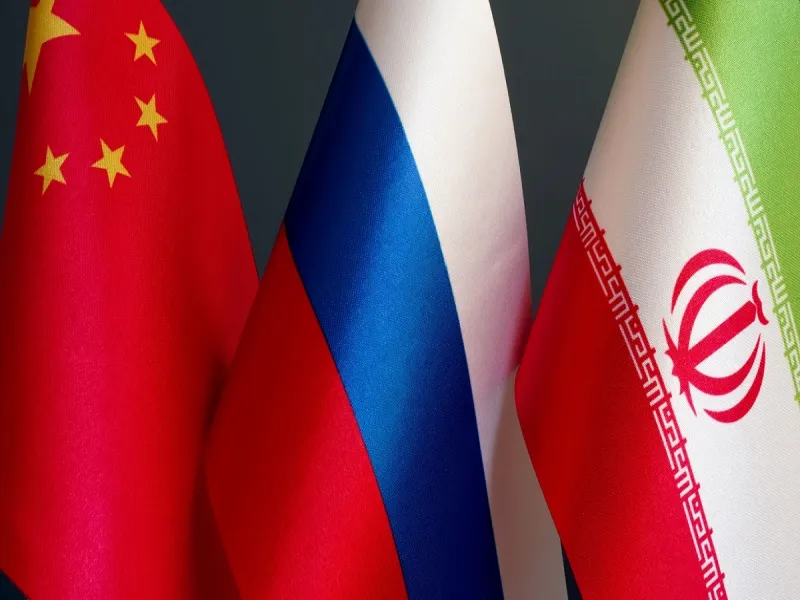
A lot of well-intentioned folks look to influential members of the Alt-Media Community for guidance in understanding the complex processes associated with the global systemic transition, but these leading figures tend to exaggerate developments for clout, to push an ideology, and/or to solicit donations.
The latest Russian-Chinese-Iranian naval drills are taking place this week near the Islamic Republic’s port of Chabahar under the observance of Azerbaijan, India, Kazakhstan, Oman, Pakistan, and South Africa, whose envoys were invited to attend these exercises. The message being sent is that civilizationally dissimilar countries can cooperate in furtherance of shared security interests in the global commons, which is important but shouldn’t be exaggerated like the Alt-Media Community (AMC) is prone to do.
These three civilization-states are engines of the emerging Multipolar World Order, but they aren’t each other’s “allies” like the AMC frames them as, nor have they formed a “military bloc”. They’re strategic partners and are jointly cooperating to accelerate the global systemic transition away from unipolarity, but that’s different than being “allies” or part of a “military bloc” with the mutual defense obligations that those terms imply. In fact, some sensitive differences still between Russia and the other two.
This analysis here from the end of December hyperlinks to nearly two dozen analyses documenting the closeness of Russian-Israeli relations, which obviously worries Iran, while this one here from the same time confirms that Russia and Iran agreed to disagree about disputed Gulf islands. As for the Russian-Chinese dimension, this analysis here from last May draws attention to their range of differences, which include Kashmir, the South China Sea (specifically the Philippines and Vietnam), and China’s latest map.
Despite Russia’s sensitive differences with Iran and China, however, all three are willing to look beyond them in pursuit of the greater geopolitical good by responsibly managing their disagreements and prioritizing constructive cooperation with one another instead. This important message is meant to set an example for others to follow, which is clearly a lot easier said than done, but it’s still significant to note some of the countries that Iran invited to observe these ongoing drills.
Its relations with Azerbaijan were previously strained but have been on the upswing since Baku’s one-day anti-terrorist operation in mid-September liberated the rest of its illegally Armenian occupied lands. As for India, relations are excellent, but declining to invite it while carrying out exercises near the Indian-controlled port of Chabahar could have prompted suspicions of its intentions. And finally, Pakistan’s participation in an observance capacity shows that ties are improving after January’s tit-for-tat strikes.
The AMC tends to have negative views of Azerbaijan and India due to the Karabakh Conflict and false claims of India being the West’s “Trojan Horse” in BRICS but generally support Iran, so hopefully they’ll reconsider their attitudes towards those aforesaid two after Iran invited them to observe these drills. They should also question whether it’s worth discrediting themselves by describing these drills as exercises between “allies” who’ve formed a “military bloc” after those notions were just debunked.
A lot of well-intentioned folks look to influential members of the AMC for guidance in understanding the complex processes associated with the global systemic transition, but these leading figures tend to exaggerate developments for clout, to push an ideology, and/or to solicit donations. Simply put, they betray their audience’s trust for self-interested reasons, but nobody should be fooled by their fantastical claims after this piece just pre-bunked them to prevent others’ perceptions from being manipulated.
